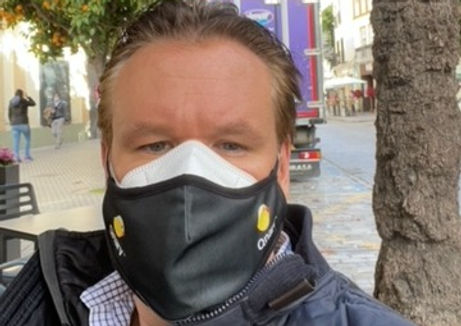.png)
Thank you to the 1,400 leaders who’ve generously done the 7 questions!
I hope reading
7 Questions with Bant Breen
helps you in your leadership.
Cheers,
Jonno White
7 Questions with Bant Breen
Name: Bant Breen
Current title: Executive Chairman & Founder
Current organisation: Qnary
Bant is a marketing and media executive, entrepreneur, and academic. In 2010 he was inducted into the AAF Advertising Hall of Achievement. He is the Founder and Chairman of Qnary an award-winning, global, professional reputation management and talent branding solutions company. In March 2020, Bant received his Ph.D. and lectures on marketing, executive reputation, and artificial intelligence’s impact on media at Blanquerna – Universitat Ramon Llull in Barcelona, Spain.

.
1. What have you found most challenging as a CEO or executive of a large enterprise?
Challenges are expected in all enterprises. In terms of difficulties that were tough, COVID presented an unusual mix of issues. Before COVID we were fast becoming a predictable growth business. In the early stages, we faced a bumpy moment where several clients paused their accounts with us. However, this paused state quickly shifted to rapid growth as things like the PPP loans increased enterprise optimism. The Qnary team expanded around the world and worked hard to re-imagine a culture and operational structure that allowed for remote work.
2. How did you become a CEO or executive of a large enterprise? Can you please briefly tell the story?
I am the founder of the business so I remember when the company was just an idea on a whiteboard. In nine years I went from hiring an initial team, chasing early-stage funding, building a minimal viable product, creating a more robust version 1.0, landing our first clients, finding out what we were really good at and what customers really wanted, crafting our mobile solution, expanding across the US and then globally, supporting and evolving company culture and now pushing into machine learning. It's quite amazing to see the scaled business that we have today. We made many mistakes along the way but we kept pushing to resolve problems...as we say to find a way.
3. How do you structure your work days from waking up to going to sleep?
I wake up at 5:00 AM (my wife is a teacher so our days start early) and make a cup of coffee (actually I drink two back to back :) ). I work out for 30 minutes and then get dressed. I have a Spanish class that I take every day at 6:00 AM. My wife is from Spain so it's important to her and the kids that I continue to improve my fluency. At 7:00 I catch up with my wife Carmen and the kids before their days start. I usually review and respond to my emails and read the news until my first meeting which is a standing meeting at 8:45 with the business development team. After that my day is filled with client calls, finance meetings, innovation sessions, hr issues, investor calls, etc... My work days start to wind down around 7:00 PM.
4. What's the most recent significant leadership lesson you've learned?
Well, I think our business model doesn't fit easily into a box for people at times. I spent a lot of hours fretting over this issue especially during fundraising and investor meetings. However recently I've become much more comfortable with our structure and model. It's unique and it works, and our model offers a broader set of growth opportunities.
5. What's one book that has had a profound impact on your leadership so far? Can you please briefly tell the story of how that book impacted your leadership?
I don't particularly enjoy reading leadership books. The vast majority of them are really not books. They should be condensed into powerful articles. Negroponte's Being Digital influenced me at the beginning of my career and opened me up to the unprecedented change and opportunity that digital media would provide. My favorite leader right now is Luis von Ahn, founder of CAPTCHA and Duolingo. His ideas and development philosophy impacted the way I think about products and innovation.
6. How do you build leadership capacity in a large enterprise?
When we started we didn't have the type of money that many venture-backed operations have so some of the advice that one hears about going out and acquiring the best, ready talent just was out of reach for us. Because of this, we invested in giving perhaps raw talent training and opportunity so that they could grow into the roles. Perhaps we accepted employees making more mistakes than most companies would but it was all about learning and improving rapidly.
7. What is one meaningful story that comes to mind from your time as a CEO or executive of a large enterprise so far?
One thing that surprises people is that I still do a handful of new sales calls and pitches every week. I do it because even though we have a great growth team that does not need me doing this it helps keep me close to understanding what potential customers are thinking about and what has changed. I think the biggest weakness in large companies is when the senior execs become too far removed from what customers are saying and understanding how best to support them.